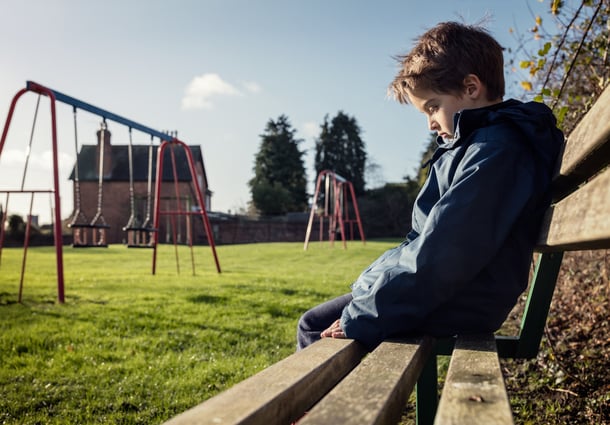
Trauma and addiction are linked. Many people suffering from substance abuse or even depression have some underlying trauma that has not been resolved.
This is a topic with a lot of myths and misconceptions swirling around, so we’re going to shed some light on the painful places.
Truth #1: Trauma is Defined by You
Psychological trauma is defined as something shocking and painful for you, not someone else.
It’s “a deeply distressing or disturbing experience” for you. The definition is entirely subjective. If you thought it hurt, then it did.
Truth #2: Almost Everyone Has Trauma
Almost everyone has trauma and painful emotional events.
Yes, physical and sexual abuse are uniquely traumatic, but that doesn’t mean that other traumatic events don’t matter.
See if you recognize a couple of these potentially traumatic emotional events:
- death of a loved one
- divorce
- abuse
- a medical diagnosis or chronic condition
- estranged relationships or highly problematic / unhealthy relationships
- job loss
- isolation
.. and there are more.
Truth #3: Trauma and Addiction are Linked
Trauma and addiction are linked, particularly childhood trauma and addiction.
 Individuals who score high on the Adverse Childhood Experiences Questionnaire are five times more likely to become alcoholics, and up to 46 times more likely to inject drugs.
Individuals who score high on the Adverse Childhood Experiences Questionnaire are five times more likely to become alcoholics, and up to 46 times more likely to inject drugs.
(Source: The Kaiser Permanente and Centers for Disease Control and Prevention Adverse Childhood Experiences Study.)
Why is there such a significant connection here?
People abuse drugs and alcohol as a way to mitigate the mental and emotional suffering that comes with unhealed trauma.
Truth #4: Unhealed Trauma and Self-Hurt
Want a pretty reliable way to spot people who have unhealed trauma? They’re hurting themselves.
Consider these words from author J.M. Storm:
“Before you pass judgment on one who is self-destructing, it’s important to remember they usually aren’t trying to destroy themselves. They’re trying to destroy something inside that doesn’t belong.”
Truth #5: Trauma is Linked to Mental Health
Trauma is linked to the development of myriad mental health issues.
Depression, anxiety, bipolar disorder … trauma is a significant risk factor in the development of all of these mental health conditions.
Truth #6: Trauma Leads to Physiological Changes
Going through a traumatic experience leads to physiological changes; when you live in fear for a prolonged period, your brain chemistry is altered and you’re more likely to struggle with mental health conditions and addictions.
Truth #7: Happy Childhood Can Still Have Trauma
You can have a “great childhood” and still struggle with trauma.
We often see people who are ashamed because they grew up in physical comfort and are struggling with deep mental and emotional pain.
Will your past hurts look different from those of someone who grew up in poverty?
Yes, of course.
But that doesn’t mean that your hurts don’t matter, or that it isn’t important to heal them.
Truth #8: Traumatic Memories Are Often Repressed
It is possible to repress painful, traumatic memories.
This is because of how the brain handles trauma.
 The brain tries to protect you by putting events outside your conscious awareness for a time, so that you can function and get to a safe place. It’s a benevolent thing, but it can be problematic if you don’t ever address them.
The brain tries to protect you by putting events outside your conscious awareness for a time, so that you can function and get to a safe place. It’s a benevolent thing, but it can be problematic if you don’t ever address them.
The good news is that if you want to heal, you don’t need to stress about remembering everything right away.
All you need to do is work with what’s upsetting you right now, and then follow the energy back to the first time you can remember feeling that same way.
Truth #9: Healing Trauma Requires Compassion
Healing from trauma means following the energy back and offering compassion to your past self.
Asking, “When is the first time you remember feeling that way?” allows you to access the original root event.
Maybe it was in third grade science class when everyone made fun of you. Maybe it was when you were five years old and your older brother locked you in a closet and left you alone in the dark.
Whatever it was, you identify that first, painful occurrence, and then offer your younger self compassion.
Truth #10: Your Beliefs Have the Power to Set You Free
Healing from trauma means changing how you hold traumatic events in your consciousness.
Your beliefs have the power to keep you stuck or set you free.
If you believe that your trauma makes you a victim, someone who can’t be happy, then you’ll live in a way that “proves” that belief to be true.
But if you decide that you are strong and resilient, someone who can overcome and go after what they want in life?
Then you’ll live in a way that reflects that belief as well.
Which truth spoke to you? Leave us a comment and let us know. Thanks for watching!
Learn More on Addiction and Trauma
Could underlying trauma be behind an addiction or mental health condition for you? Learn More about Underlying Core Issues by downloading our FREE eBook:



